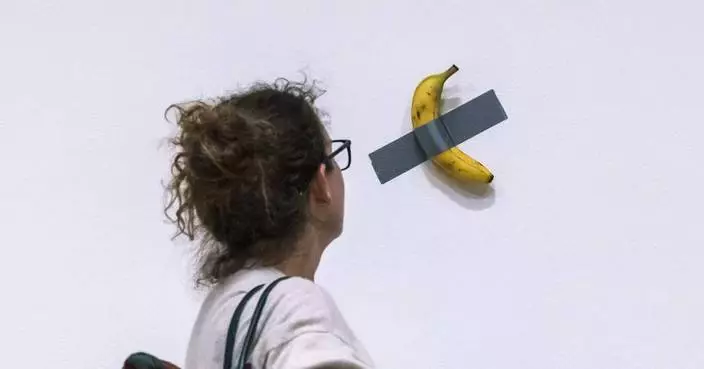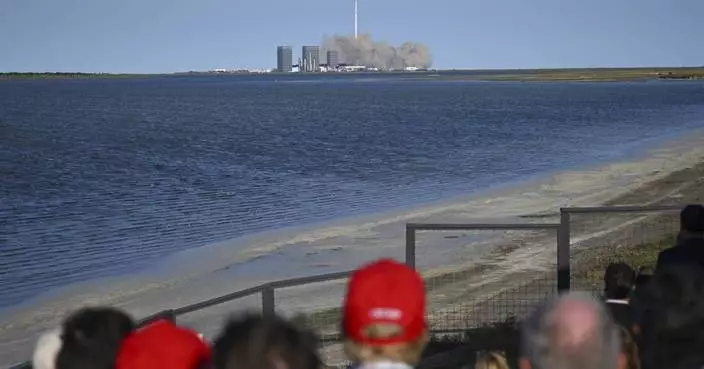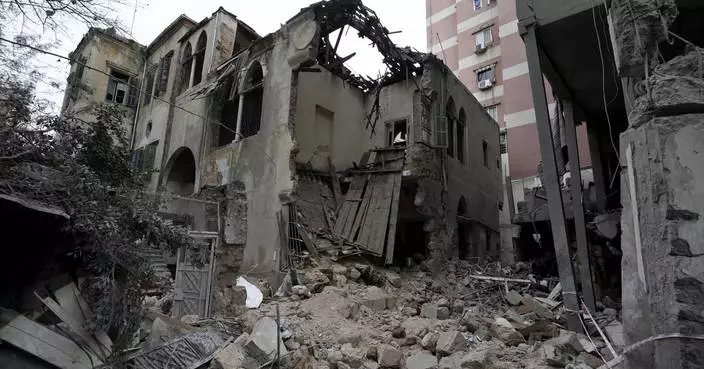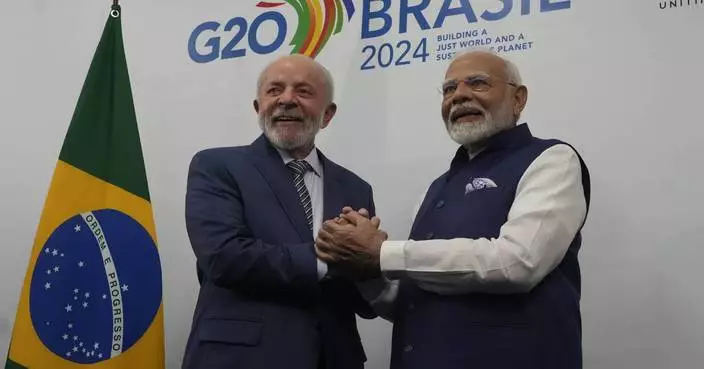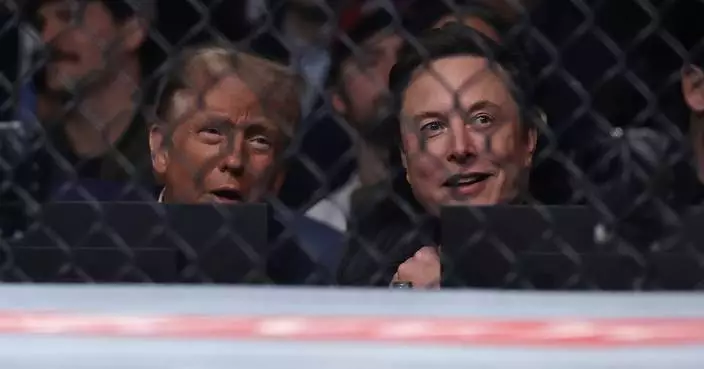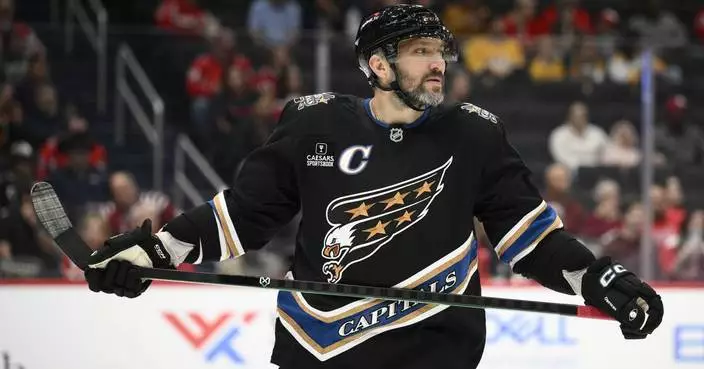ZURICH (AP) — The draw seedings for 2026 World Cup qualifying groups in Europe were decided Tuesday when the last round of Nations League games saw Slovakia and the Czech Republic secure a higher status.
FIFA makes the draw on Dec. 13 in Zurich for the 12 European qualifying groups. The 12 first-place teams next November advance directly to the tournament being co-hosted by the United States, Canada and Mexico. Four more entries are decided in playoffs.
The 12 top-seeded nations were already known before the games on Tuesday. Those are the eight Nations League quarterfinalists, plus four more teams ranked highest by FIFA, including England.
Slovakia’s 1-0 win over Estonia and the Czechs beating Georgia 2-1 ensured they would complete the pot of second-seeded teams, which comprises the next 12 highest in FIFA ranking.
Those results pushed Scotland down into pot 3, where it risks landing in a tougher group as it seeks qualifying for a first World Cup since 1998.
Europe has 16 entries in the first 48-team World Cup and the other four places will be decided by playoff knockout brackets in March 2026.
The 16 playoff teams will be the 12 runners-up in the World Cup qualifying groups, plus four teams that finished top of a Nations League group this week. They could include Northern Ireland, Moldova and San Marino.
The FIFA draw next month is unusually complex and lacking clarity on the day because the eight Nations League quarterfinalists will be placeholders. Their precise placing will be decided after the two-leg quarterfinals are played on March 20 and 23.
The 54-team draw will allocate six groups of four teams and six groups of five teams. The bigger groups can start in March or June.
Places in four-team qualifying groups must be reserved for the four teams that advance to the Nations League Final Four in June. Those World Cup groups can only start play in September.
Russia, the 55th UEFA member federation, has been banned from international soccer during the military invasion of Ukraine.
World Cup qualifying groups draw seedings:
Pot 1: Spain, Portugal, Germany, France, Italy, Netherlands, Denmark, Croatia, England, Belgium, Switzerland, Austria.
Pot 2: Ukraine, Turkey, Sweden, Wales, Hungary, Serbia, Poland, Greece, Romania, Slovakia, Czech Republic, Norway.
Port 3: Scotland, Slovenia, Ireland, Albania, North Macedonia, Georgia, Finland, Iceland, Northern Ireland, Bosnia-Herzegovina, Montenegro, Israel.
Pot 4: Bulgaria, Luxembourg, Belarus, Kosovo, Armenia, Kazakhstan, Azerbaijan, Estonia, Cyprus, Faeroe Islands, Latvia, Lithuania.
Pot 5: Moldova, Malta, Andorra, Gibraltar, Liechtenstein, San Marino.
AP soccer: https://apnews.com/hub/soccer
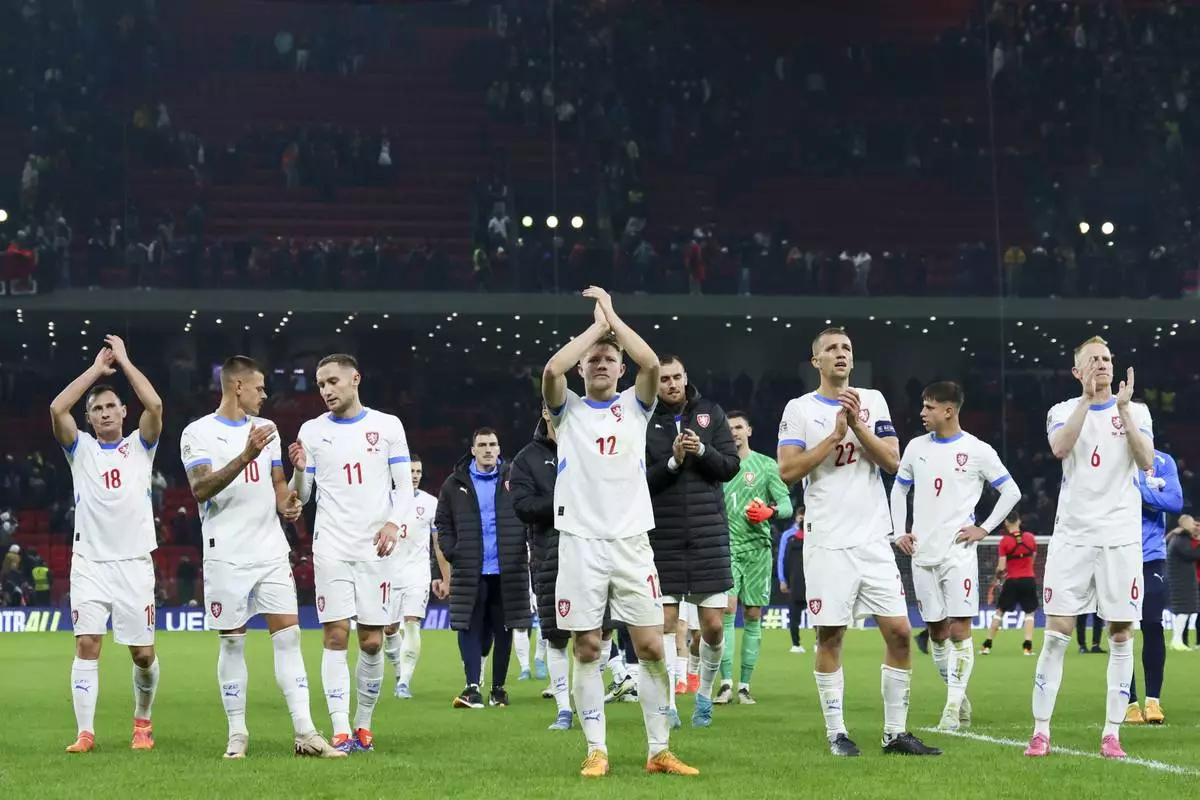
Czech Republic players applaud after the UEFA Nations League Group B1 soccer match between Albania and the Czech Republic at Air Albania Stadium in Tirana, Saturday, Nov. 16, 2024. (AP Photo/Vlasov Sulaj)
CARACAS, Venezuela (AP) — The U.S. government recognized Venezuelan opposition candidate Edmundo González as the “president-elect” of the South American country on Tuesday, months after President Nicolás Maduro claimed to have won the July election.
U.S. Secretary of State Antony Blinken recognized González in a post on X in which he also demanded “respect for the will” of Venezuelan voters.
The administration of U.S. President Joe Biden has said González earned the most votes in the disputed July 28 election but has fallen short of acknowledging him as president-elect.
Venezuela’s National Electoral Council, which is stacked with Maduro loyalists, declared Maduro the election winner hours after polls closed. Unlike previous presidential elections, electoral authorities did not provide detailed vote counts.
But the opposition coalition collected tally sheets from 80% of the nation’s electronic voting machines and posted them online. González and opposition leader Maria Corina Machado said the voting records showed the former diplomat won the election with twice as many votes as Maduro.
“We deeply appreciate the recognition of the sovereign will of all Venezuelans,” González said in a post on X shortly after Blinken's statement Tuesday. “This gesture honors the desire for change of our people and the civic feat that we carried out together on July 28.”
González left Venezuela in September for exile in Spain after a warrant was issued for his arrest in connection with an investigation into the publishing of the vote tally sheets.
Venezuela's Foreign Minister Yván Gil responded to Blinken's comment with personal attacks.
"In the last days of his government, he should dedicate himself to reflecting on his failures, getting rid of imperial and colonial complexes and going to write the memoirs of how the Bolivarian Revolution made him bite the dust of defeat, just like his predecessors," Gil said of Blinken in a statement, which did not mention election results.
Maduro and electoral authorities have rejected repeated calls from the U.S., the European Union, Colombia, Brazil and other nations to show the detailed vote records that back up the president's reelection.
Swift condemnation of the lack of post-election transparency prompted Maduro to ask Venezuela’s Supreme Tribunal of Justice, whose members are aligned with the ruling party, to audit the results. The high court reaffirmed his victory.
Experts from the United Nations and the U.S.-based Carter Center, which observed the election at the invitation of Maduro’s government, determined the results announced by electoral authorities lacked credibility. The U.N. experts stopped short of validating the opposition’s claim to victory but said the faction’s voting records published online appear to exhibit all of the original security features.
Earlier in the week, Colombia’s President Gustavo Petro, who has friendly relations with Maduro, reversed his support for the July elections, calling the vote a “mistake.”
Petro spoke in an interview with Brazilian news outlet Globo News, which released excerpts online that Petro’s office shared Tuesday on social media. Petro told the news outlet Monday while visiting Brazil for the G20 summit that he initially was in favor of Venezuela holding the elections, but that he later decided that the vote was not “free.”
“I think the elections were a mistake,” Petro said. His office did not immediately respond to a request for him to elaborate on the reasons for his change of heart.
Petro, Brazilian President Luiz Inácio Lula da Silva and then-Mexican President Andrés Manuel López Obrador — all leftists friendly with Maduro — attempted to make peace as the results came under dispute, but the effort went nowhere.
Venezuela’s next presidential term begins Jan. 10. Maduro has already received an invitation from the ruling party-controlled National Assembly for a swearing-in ceremony.
Garcia Cano reported from Mexico City. Associated Press writer Astrid Suarez contributed to this report from Bogota, Colombia.
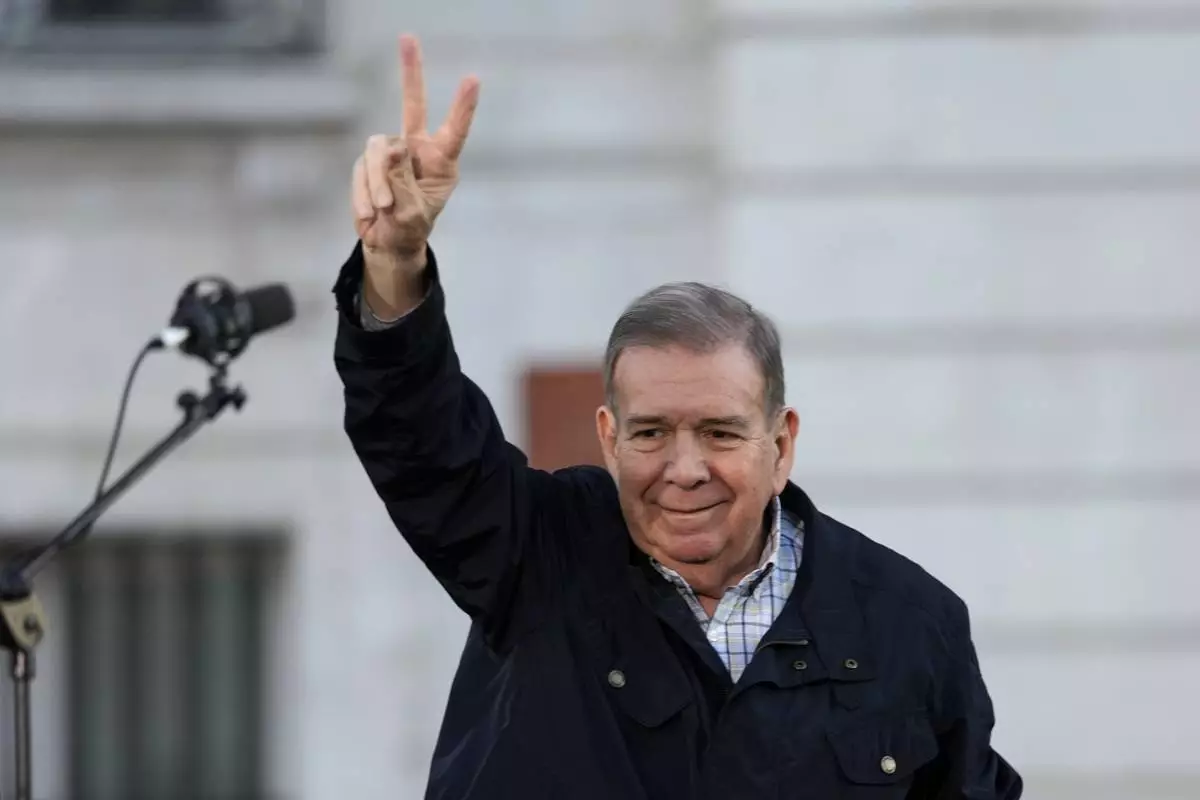
FILE - Venezuelan opposition leader Edmundo González waves to supporters at Puerta del Sol in downtown Madrid, Spain, Sept. 28, 2024. (AP Photo/Bernat Armangue, File)





